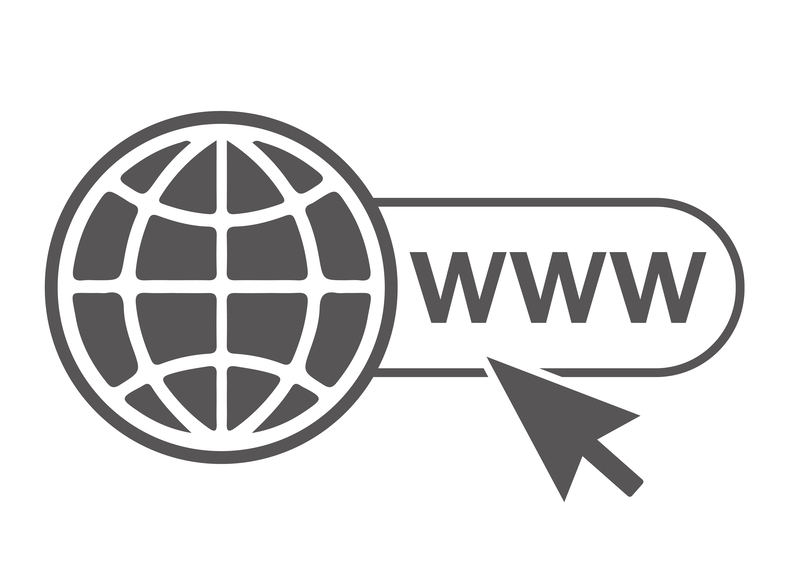The High Risks of Moving Your Own Piano and Better Options
Posted on 16/06/2025
The Hidden Dangers of Moving Your Own Piano
Relocating a piano isn't just about finding enough muscle to shift a massive instrument. Behind the glossy wood and ivory keys lies an intricate mechanism, immense weight, and high sentimental as well as monetary value. In this comprehensive article, we'll unravel the high risks of moving your own piano, why it's a task best left to professionals, and what smarter alternatives are available.
Why Pianos Are Especially Challenging to Move
- Sheer Weight: Even a small upright piano can weigh upwards of 300 pounds, while grand pianos can top 1,200 pounds.
- Awkward Weight Distribution: Their weight is concentrated in places, making them uneven and tricky to balance.
- Delicate Parts: Pianos house thousands of tiny, sensitive components, including hammers, strings, and pedals that are easily damaged.
- Size and Shape: Their large, odd shape makes navigation through hallways and doorways a puzzle.
If you attempted to move your own piano, would you know how to safeguard each part? The reality: most people don't.

The High Risks of DIY Piano Moving
Many homeowners underestimate the unique challenges and risks involved in moving a piano without professional help. Here are the major risks associated with a DIY piano move:
1. Severe Personal Injuries
Moving a piano isn't just hard on the back--it's a recipe for serious injury. Common consequences include:
- Back strains and spinal injuries due to improper lifting techniques and the need to maneuver heavy, unbalanced equipment.
- Cuts, smashed fingers, or broken bones from mishandling or dropping the instrument.
- Trip, slip, and fall hazards while negotiating stairs, tight corners, or uneven floors, especially if the right equipment isn't used.
Don't underestimate the physical risks; even a team of strong friends can easily be overwhelmed.
2. Piano Damage
- Cosmetic damage such as scratches, dents, chipped wood, and broken legs can devalue your cherished instrument.
- Internal mechanism failures--damage to strings, soundboard, pedals, or hammers--may make the piano unplayable or require expensive repairs.
- Improper loading in vehicles can result in shifting, tipping, or dropping during transit, causing catastrophic harm.
Remember, even minor bumps can put your piano out of tune or break vital parts.
3. Property Damage
It isn't just about your instrument. The dangers extend to your home and surroundings:
- Scratching or gouging floors, stairs, or walls during awkward maneuvers.
- Damaging doorways and thresholds if the instrument doesn't fit perfectly or slips unexpectedly.
- Collateral damage to furniture and other valuables positioned along the intended route.
4. Lack of Proper Equipment
Professional piano movers use specific tools such as piano dollies, harnesses, skid boards, moving blankets, and ramps. Most homeowners lack these essentials, resulting in risky improvisation:
- Misuse of makeshift materials leads to instability and increased accident risks.
- Vehicles often lack appropriate tie-downs or the required space for safe transport.
5. Possible Legal and Insurance Issues
- If you injure yourself or others during a piano move, medical bills and liability can quickly accumulate.
- Most homeowner policies don't cover damages to your piano or property due to DIY moving accidents.
- Potential damage to shared property in an apartment or rental could result in disputes or penalties.
In short, the risks are considerable--and often far more costly than hiring a reputable piano moving company.
Common Myths About Moving a Piano Yourself
- "It's just heavy, not complicated."
Actually, it's both. The difficulty isn't merely weight; it's managing the instrument's bulk, fragility, and value. - "I can save money moving it myself."
The cost of equipment rentals, potential injuries, repairs, and property damage can far exceed professional fees. - "If I have enough helpers, it'll work."
Teamwork is crucial--but only if your team has the know-how, equipment, and coordination experienced movers provide.
What Professional Piano Movers Do Differently
Before you attempt a risky DIY piano move, consider what sets experts apart. Professional piano movers bring both specialized skills and the right tools:
Specialized Equipment
- Heavy-duty piano dollies, skids, lifting straps, and secure padding for careful maneuvering and protection.
- Custom-built ramps and stair climbers for smooth navigation of steps or challenging spaces.
- Vehicles designed for safe piano transport, equipped with tie-downs, suspension, and climate control if needed.
In-Depth Knowledge and Experience
- Understanding piano anatomy--where to lift, how to balance, what to avoid touching--to protect the instrument's integrity.
- Strategic planning, including route assessment and space measurement, to foresee and address obstacles.
- Efficient teamwork and communication for each phase of the process.
Comprehensive Insurance Coverage
- If something unexpected happens, your piano and home are financially protected by mover insurance policies.
- This removes personal liability if accidents occur--giving you peace of mind.
Better Options: Hire a Professional Piano Moving Service
The smartest alternative to a risky DIY move is hiring skilled professionals who specialize in piano moving. Here's why this is your best bet:
Benefits of Professional Piano Movers
- Expert Handling: Your piano commands the care, knowledge, and experience that ensure safe relocation--no matter its size or type.
- Limiting Risk: Trained professionals significantly reduce potential for both physical and property damage.
- Time Efficiency: What might take you half a day, a crew of two can complete properly and safely in an hour.
- Proper Equipment: Movers arrive with all required gear and vehicles, tailored to your situation.
- Liability Protection: Insurance covers your piano, your home, and the workers--no nasty surprises for you.
- Piano Reinstallation and Tuning: Some companies offer reassembly and tuning services at your new location, saving you even more hassle.
How to Choose the Best Piano Moving Company
Ensure you're choosing a reputable, experienced piano mover by considering these tips:
- Check for specialization in piano moving (not just general movers).
- Read online reviews and solicit referrals from local music teachers, stores, or institutions.
- Confirm insurance status and obtain a detailed estimate in writing.
- Discuss the process, equipment used, and potential obstacles in advance--transparency is key.
- Ask about available services, including tuning or storage options if needed.
Alternative Solutions for Piano Relocation
1. Specialty Piano Moving Companies
These firms focus exclusively on pianos, harpsichords, and organs, and are well-versed in every make and model. They offer the highest confidentiality and care, especially for antiques or grand pianos.
2. Full-Service Moving Companies (With Piano Expertise)
If you're moving your home and piano together, find a mover with documented experience in large instrument transport. Specify your needs upfront and verify training credentials.
3. Climate-Controlled Piano Storage
If your move includes a waiting period between homes, look for companies offering secure storage with humidity and temperature control. This prevents warping, cracking, or tuning loss.
4. Piano Disassembly and Reassembly Services
For oversized or challenging moves (multi-story moves, tight corners), some companies will partially disassemble and reassemble your piano, maintaining both aesthetics and functionality.

Tips for Preparing Your Piano for Professional Movers
Maximize the safety and efficiency of your piano move with these simple preparation tips:
- Clear the Path: Remove furniture, rugs, and obstacles from the approach route.
- Inform Movers of Hazards: Alert movers to tricky stairs, narrow doorways, or odd turns.
- Secure Items: Remove sheet music, lamps, or other accessories from the piano.
- Take Photos: Document your piano's current condition as a record for insurance purposes.
- Share Details: Be clear about the piano's make, model, weight, and special considerations when booking the service.
Conclusion: Why Moving Your Own Piano Isn't Worth the Risk
The risks of moving your own piano far outweigh any potential savings. Besides the likelihood of damaging your instrument, your property, or your health, there's a major risk of unforeseen expenses and uninsurable losses. Instead, investing in a trusted professional piano moving company ensures your prized instrument arrives safely, securely, and ready to play in your new home.
Ultimately, choosing expert piano movers is the best way to protect both your treasured instrument and those moving it--making it a clear, smart decision.
Ready to Arrange Safe, Stress-Free Piano Moving?
- Research local piano moving companies with strong reviews.
- Ask questions regarding their process, insurance, and reputation.
- Schedule your move well in advance for availability and peace of mind.
With the right professionals, you can enjoy your piano in its new home after a move--without the pain, panic, or costs associated with going it alone. Don't take the chance--move your piano the smart and safe way!
Latest Posts
The High Risks of Moving Your Own Piano and Better Options
Your Go-To Checklist for Moving Your Bed and Mattress
Crucial Packing Insights for a Successful House Move
Pro Tips for a Seamless Move: Cleaning Your Home at its Best



